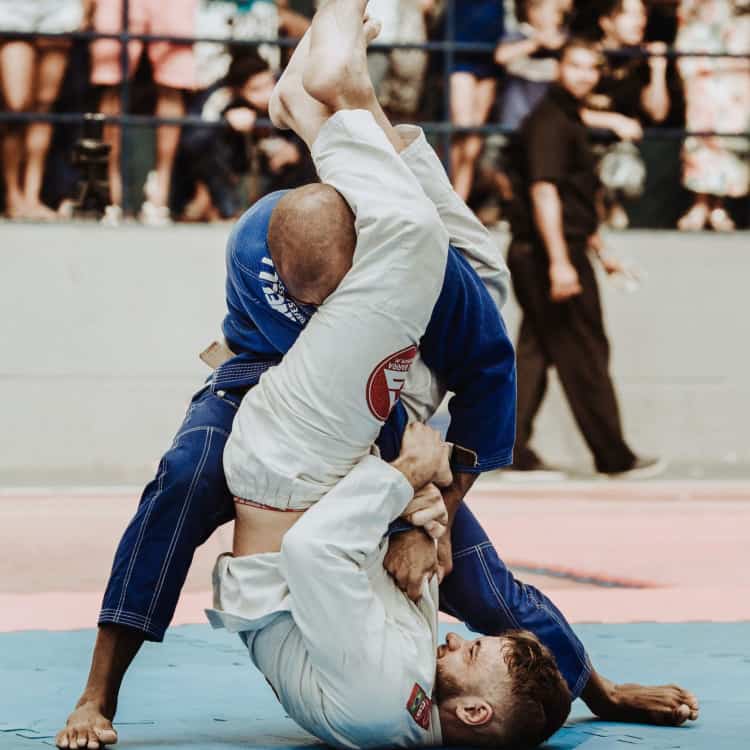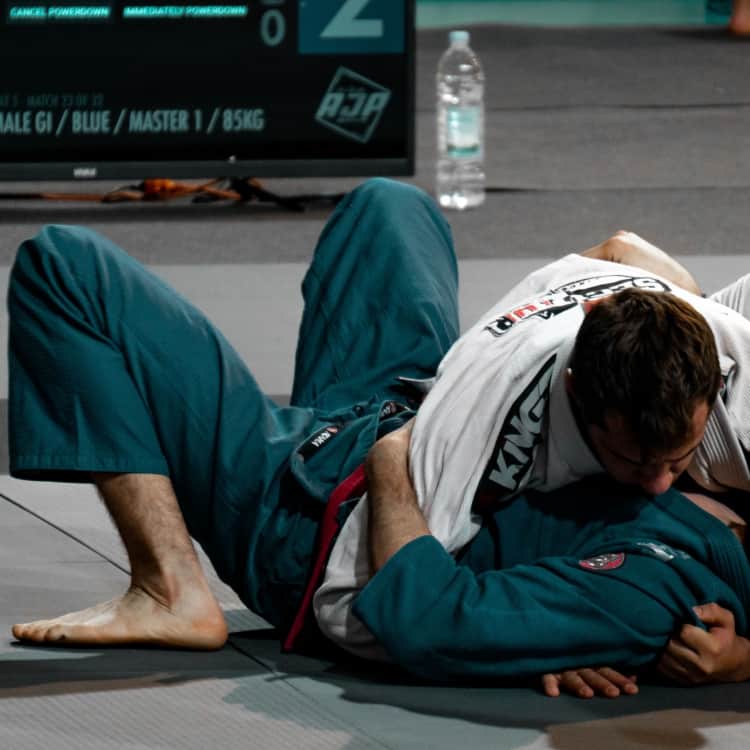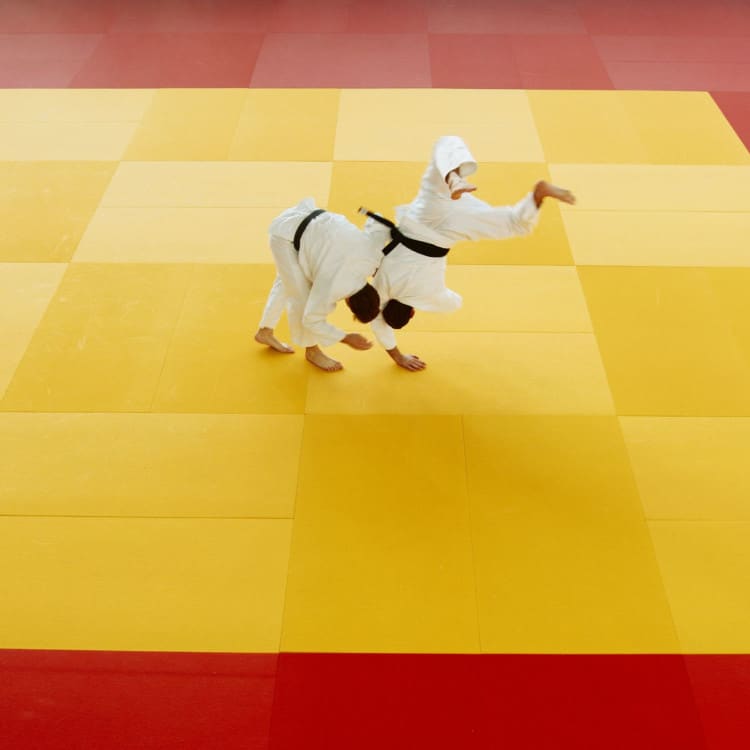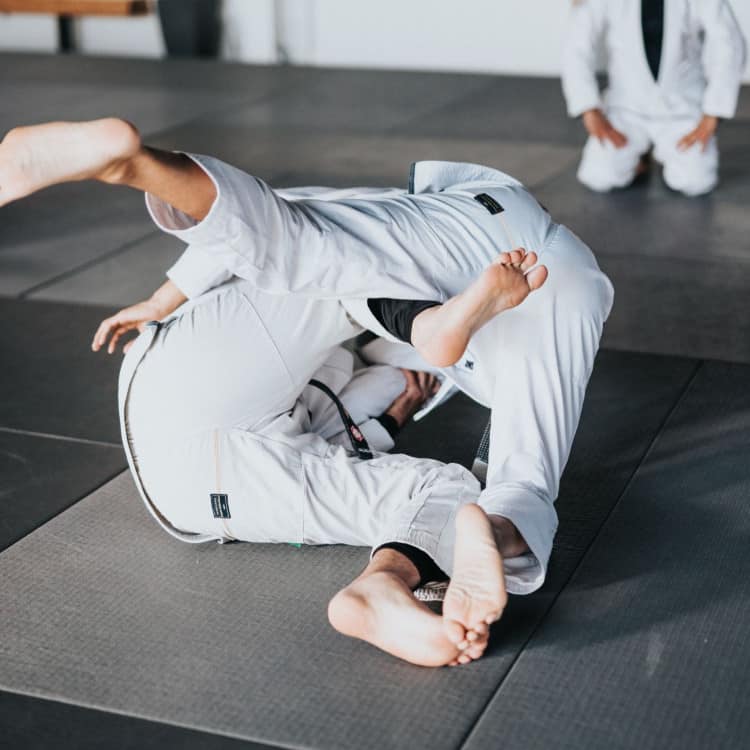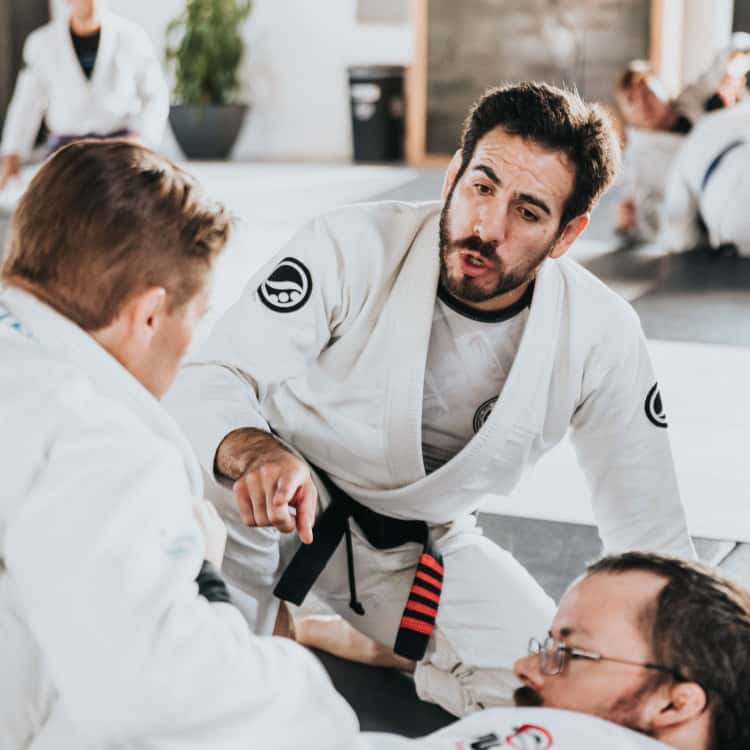What style of martial art is better? Judo or Jiu-Jitsu?
It's a question we've been discussing for years, and there's a lot of misinformation surrounding both styles of Martial Arts.
This article will answer some fundamental questions that will help you decide which martial art to study.
Judo V's BJJ: Why We Need To Compare The Arts
We don't really need to compare Jiu Jitsu and Judo. However for beginners or people considering taking up either of these Martial Arts it makes sense to do so, because they are similar.
They both use throws, pinning techniques and joint locks to finish the fight. So what's better Judo or BJJ?
Read on for an explanation of each style.
What do we mean by BJJ or Jiu-Jitsu?
The first thing that we need to establish is if we are talking about BJJ or traditional Japanese Jiu-Jitsu?
Well, for this post, I am talking about BJJ.
I don't have an issue with traditional Ju-Jitsu. Still, in reality, it is hugely in decline in terms of instruction and use because of the popularity of Brazilian Jiu-Jitsu.
When BJJ or Gracie Jiu-Jitsu was promoted to the world by its exposure in the UFC, it proved that it was one of the best combat martial arts. As a result, this pretty much killed Ju Jitsu clubs globally.
Now, while I am not going to say that Ju-Jitsu is terrible because both Judo and BJJ are born from Ju-Jitsu.
Years ago, the Japanese police were trained on Judo instead of traditional Ju-Jitsu because Judo defeated Ju-Jitsu in a match.
The police use of Judo is what fuelled the growth of Judo initially. But I want to clarify that when I say Jiu-Jitsu, I refer to BJJ and not the traditional Japanese kind.
What Is Judo?
In Japanese, "judo" means the gentle way. Judo is a sport that originated in Japan, focusing on throwing the opponent onto their back and pinning them with armbars. Judoka will also use submission techniques to win fights if necessary.
What Is BJJ?
Jiu-jitsu (BJJ) a cousin of Judo, but it's focused on taking the fight to the ground. BJJ is an art that focuses on throwing, grappling and ground fighting.
The Rules of Judo
Judo is a grappling martial art that emphasizes throwing and pinning techniques.
It was developed in Japan back in the 1800s and more traditional styles of Japanese Jiu-Jitsu. Judo competitions only allow throws, pins, chokes, and arm locks which are executed without striking or kicking one's opponent.
The matches start standing, and the aim or focus of Judo is to throw the opponent with force and control onto their back.
A scoring system exists to grade the throws in term of effectiveness, and when the Judoka hit the ground, they have a short amount of time to get a pin, choke, strangle or armlock in place.
If the score is deemed the maximum points, known as an 'Ippon'. The throwing Judoka wins.
This is like a knockout in boxing.
There is a half score in Judo called a Wazari, and 2 of these will result in an Ippon. Along with points awarded for the amount of time a person is held down.
But I don't want to go deep into the point system; this is just an overview.
Leg locks, spine locks, knee locks and foot locks are all banned in Judo, along with a range of other techniques.
In recent years Judo banned the use of takedowns where you grabbed below the waist of the player. This meant that many wrestling style takedowns were removed from the sport.
While it caused huge controversy, the aim was to distinguish Judo as a spectator sport different from wrestling. Judo was wrestling with a jacket to the outside observer, and this wasn't good for its place in the Olympics.
Judo owes its massive growth to participation in the Olympics, and that event is very much a vast business.
Today, Judo is a far more exciting sport with big throws that draw gasps from the crowd. These are throws and techniques that are mostly not seen in wrestling, and as such, the difference between the 2 sports is now much clearer, and arguably, Judo is more exciting as a spectator sport.
The Rules of BJJ
The rules of BJJ are similar to Judo in that wins are earned either by submission or points victory.
However, removing the 'instant win' through an Ippon throw has changed the focus of the sport altogether.
Throws and takedowns do score points, but they are just ways to get the fight to the ground, and this is where the BJJ player wants to be.
On the ground where they can gain points or get that tap out submission victory.
Points are awarded for the player to move into the dominant positions of combat. Passing the legs scores points, side mount scores more, mount, back take and so on.
As pinning for time is not part of the scoring system, this creates another critical element of difference between Judo and BJJ.
The rules of the 2 sports cause a very different focus. Judo is focused on the takedowns and BJJ on the groundwork.
Visually this is clear when you watch Judo and BJJ matches.
The Techniques of Judo
The techniques of Judo happen in 2 areas of combat.
The first is the standing or known and Tachi Waza.
The second is the groundwork, known as Newaza.
Judo has removed all lower body takedowns with the hands. This means that 'double leg or Morote Gari and Kata Guruma (Firemans carry) throws are now out of Judo.
The result is that Judo requires more technical throws using the Jacket and what is known as Kuzushi, or the art of breaking balance.
On the ground, the limited time given to Judoka to finish the match means that techniques are applied fast and as a result of a transition from a throw to ground technique.
This mirrors the way that the Samurai used traditional Japanese Ju-Jitsu as a fighting art.
The opponent was thrown to the ground and stunned in the process. Once on the ground, they were quickly finished off.
This is a crucial point I will touch on later.
The Techniques of BJJ
BJJ is different from Judo because the fighters want to end up on the ground.
The goal of BJJ is to take an opponent to the ground, move into a dominant position and finish with a submission technique.
And more techniques are legal, such as some ankle locks. As well as all throws being permitted, this means that wrestling style throws are used more in BJJ than the throws of Judo.
In addition, fighters perform an act which is known as pulling guard. This is when they fall to their back or even jump and put their legs around the opponent's waist to get them to the ground.
BJJ ground techniques are almost always based on leverage, allowing a weaker person to defeat a bigger person.
Judo For Self Defense
Judo is an excellent art for self-defence because it focuses on throws.
I will talk about this when I give my verdict to the winner of the big Judo v BJJ contest.
We can't dismiss that the world is based on the laws of gravity, and this is what Judo uses to its advantage. A solid Judo throw on the ground can cause serious injury or death on the concrete.
In addition, the short amount of time on the ground is focused on finishing fights quickly. This makes practical sense in the world of self-defence because there could be multiple attackers, or the attacker could have a blade hidden.
However, Judo does not teach strikes as part of its training, which leads to a massive gap in its self-defence use.
BJJ For Self-Defence
BJJ is an exciting art when it comes to self-defence because it is more adjusted to street fighting.
Its practical 'fighting' and pressure tested origins of art are on the streets and beaches of Brazil. And it owes a lot to the one in one challenge matches or fights that happen in Brazil.
It was built as a self-defence system first and foremost, and it uses a straightforward process that is represented in the rules of the sport. You aim to take the opponent down and get to a dominant position to either strike, break a limb or choke out the opponent.
BJJ does have a strong focus on self-defence, but demand for the sport has caused the sporting aspects to be the only part of the system taught.
This has watered down BJJ and angered many of its older teachers who see BJJ as becoming less effective or indeed ineffective for street self-defence.
Some BJJ schools barely practise takedowns, and this can be seen in competitions.
As someone who has taken BJJ lessons and is a Judo black belt, this is something that has put me off from doing more.
Would studying BJJ make me better equipped for self-defence or less?
It's a question that I hope to answer in this article at the end.
Judo and BJJ Clothing
In Judo and BJJ both sportswear what is known as a Gi. The term Gi translates to "uniform" and is a very different garment than other martial arts wear.
In Judo the Gi has lapels that are thick and the fabric is very strong. It needs to be because the Jacket is in essence hat is used to throw an opponent.
The BJJ Gi is often more tightly fitted and lighter in weight. This is because the gi is not needed to stand the rigours of regular throwing practise and more fabric can be held and used as leverage on the ground.
The Gi in both sports is usually purchased as an entire suite. And many with own several Gi's.
So Which Is Better, BJJ or Judo?
When writing this segment, I have chosen to offer a logical reason for selecting the best art.
First, we need to ask ourselves what do we mean by best?
Best means' what is best for you.
This comes down to a few factors. The most obvious is distance and price.
Best needs to be something that you can attend and also afford to pay tuition for.
Now that logistics are out of the way, we need to look at goals.
When you consider which sport is best for you, you must look at why you want to train.
Is it because you saw the slick ground worked of a BJJ black belt on the UFC? Or is it because you want to learn self-defence?
Is it because you want a low-stress workout for your body that gives some self-defence skills, or is it because you want to learn how to throw people?
I am going to be crystal clear here, because this is what I think you need to know.
If you want to learn how to defend yourself properly, BJJ is NOT the solution for you.
Here's why.
BJJ is without a doubt the best self-defence system when it comes to one on one unarmed fights.
Except one huge gaping issue.
The system's success relies entirely on the attacker being both on their own and not having a weapon.
This renders BJJ in the 'partially effective' camp of self-defence.
Judo doesn't have strikes but is focused on throwing the attacker, and this can be done even if they have a weapon.
This can be done, even if there are multiple attackers. (There is a drill in Judo where you takedown 3 people repeatedly, at speed while still standing that emphasizes just how fast and effective Judo throws can be).
This key tactical difference in my view (and that comprises of a lot of experience of real violence) is what separates the 2.
Do I really want to take a guy to the ground in the street, move to the mount or take his back and then strangle him?
All the while he could pull out a screwdriver, syringe or blade and stab me because I have put my body next to theirs?
Of course not.
In combat, you either know or don't know that they have a weapon.
So, if your primary reason for learning either art is self-defence, then Judo is the winner.
You will not gain any other skills for self-defence by training in BJJ that Judo cannot give you.
But you will however focus on the more practical self-defence skill of throwing.
Yet, despite this point as a Judoka for 20 years, I can tell you that Judo is hard on the body.
It's hard on the back, the knees, the hips, the fingers.
For this reason, as an adult, Judo is a very tough sport to start. I take my hat off to any Judoka that starts as an adult.
If you have existing injuries (and it's likely you do), Judo is going to be an uphill battle for you.
So, BJJ might well be better for you in this regard.
What About Speed of Learning?
It can take anything up to 10 years to become a black belt in BJJ. Where is in Judo, black belt is often considered a bit like when you pass your driving test. That's when the real learning begins.
If you train weekly or at least twice a week at a Judo club, you will get grades faster and are likely to reach black belt faster in Judo.
So if the status of being a black belt is what you desire, then Judo is going to win there. And make no mistake, a Judo black belt is a respected Martial Art grade. They don't give them away, you have to fight for them.
But in comparison, you will reach Judo black belt faster than a BJJ player reaches black belt, but that is not a like for like experience level for the sports.
A first-year black belt in BJJ represents a Judo black belt of many years of experience.
Fitness
BJJ and Judo are very different in terms of their needs for fitness. Judo focuses on the standing game, and this requires a lot of aerobic and anaerobic strength, which are used in different amounts.
It is explosive and faced paced on the ground and standing.
BJJ on the other hand is a slower and more tactical game on the ground. Your body will require huge reserves of isometric endurance as well as a short burst of anaerobic activity.
I have trained in BJJ and felt like my muscles have been lifting weights for hours after a session.
Whereas I would liken a Judo session to feeling like you have just played a rugby match.
In short, both offer great but different workouts that will increase your fitness.
Which Is More Fashionable?
The simple reality is that BJJ is way 'cooler than Judo. It is in many ways a lifestyle, whereas Judo is not fashionable right now, or certainly not in the UK and USA.
But both gain huge respect from Martial Arts communities.
If you say you are a BJJ player or Judoka, other Martial Artists know you are dangerous as a person.
So, which is better, which should you do?
Ultimately like I have said, it is all about which is best for you.
Your goals, your injuries, your lifestyle, what you want to achieve and which are appeals to you most is what matters.
There is no winner in the battle between Judo and BJJ.
Because in truth it's not really a battle. They are 2 different arts with similarities. But it's the differences of the art that will appeal to different people.
If you prefer the fast mostly standing game of Judo, then this will be the art for you.
If training on the ground is more your thing, then BJJ will be the winner.
Conclusion
It's easy to see how the arts of BJJ and Judo appear similar from an outside perspective.
With their focus on throws, takedowns, pins and chokes, there are many similarities in what they teach.
However, when you look more closely at the differences between these two grappling styles, it becomes clear that they're actually quite different.
Ultimately, it's up to you.
And I suggest that you give both a try.
Thanks for reading.
Andrew

